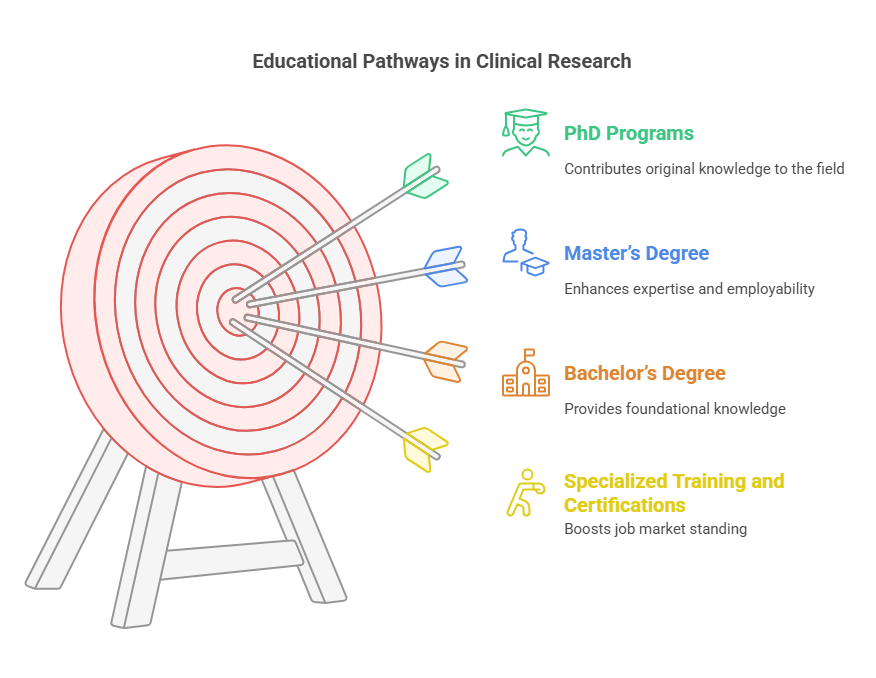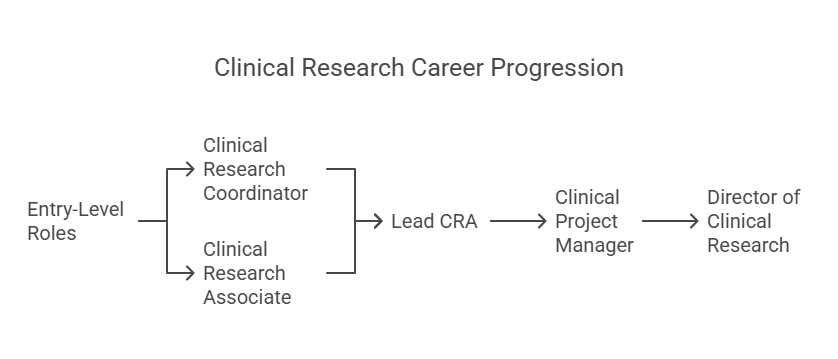Bosnia and Herzegovina Clinical Research Career Guide
Clinical research might sound like a profession confined to sterile laboratories, but it's far more adventurous in reality—especially in a place as culturally rich and historically complex as Bosnia and Herzegovina. This sector not only fuels medical advancements globally but also plays a crucial role in the local healthcare system. Clinical research involves systematically studying drugs, treatments, and medical devices to ensure they are effective and safe for human use. Bosnia and Herzegovina, with its strategic position in Southeast Europe, serves as a pivotal node in the Balkan medical research network.
What is Clinical Research?
The hypotheses of healthcare innovations are tested for their impact on human health outcomes, core to clinical research. It covers right from the early stage of biopharmaceutical development, to post market studies. Clinical trials are very precisely configured, and they are further regulated by strict regulations and ethical guidelines, to name but protect the safety and rights of participants.
Why Bosnia and Herzegovina is a Hub for Clinical Innovations?
Bosnia and Herzegovina’s growing reputation as a center for clinical research is no accident. Several factors contribute to this burgeoning status:
Educational Infrastructure: Bosnia and Herzegovina has a number of universities offering strong programs in biomedicine and health sciences and has a capacity of skilled graduates to enter the clinical research field.
Governmental Support: The government's increased support in the form of funding and streamlined regulations has made it easier for research institutions and pharmaceutical companies to do the trials.
Strategic Partnerships: Favourable conditions for clinical research are encouraged by collaborations between local universities, global pharmaceutical giants and European health organizations, by integration of academic knowledge and industry practice.
Educational Pathways
Embarking on a career in clinical research in Bosnia and Herzegovina requires a solid educational foundation. Here, we explore the academic routes that can lead you to this challenging yet rewarding field.
Degrees that Propel
The journey typically starts with a Bachelor’s degree in a related field such as Biology, Pharmacy, or Medical Sciences. These programs provide the foundational knowledge necessary for any clinical researcher. However, the real differentiation comes with further specialization:
Master’s Degree: Specializing in clinical research or a related field through a Master’s program can significantly enhance your expertise and employability. Courses focus on research methodologies, biostatistics, ethical issues, and regulatory frameworks.
PhD Programs: For those aiming at the zenith of research roles or academic positions, a PhD offers the opportunity to contribute original knowledge to the field through personal research. This is particularly valued in roles that involve designing and overseeing clinical trials.
Specialized Training and Certifications
Besides formal degrees, there are many certifications that can boost a candidate’s standing in the job market. Internationally recognized certifications include the Certified Clinical Research Associate (CCRA) or Certified Clinical Research Coordinator (CCRC) that demonstrate a professional’s commitment to maintain the highest standards of clinical research. The training programs offered by organizations like CCRPS (Clinical Research Professional Training and Support) help to build the essential skills and knowledge needed in the field, which makes the candidates more attractive to employers.
Career Opportunities and Progression
The path to becoming a clinical research professional in Bosnia and Herzegovina is as varied as it is rewarding. Whether starting fresh out of university or transitioning from a related field, numerous roles await those eager to make their mark.
Entry-Level Roles
Starting your career in clinical research often begins with entry-level positions that provide foundational experiences, such as:
Clinical Research Coordinator (CRC): CRCs are responsible for managing the administrative functions of clinical trials, ensuring compliance with regulatory requirements, and maintaining accurate data.
Clinical Research Associate (CRA): CRAs are the road warriors of the clinical research world, traveling to various study sites to monitor the progress of clinical trials, ensure adherence to clinical protocols, and act as the bridge between the study site and the pharmaceutical or medical device sponsors.
These roles are critical in ensuring the smooth operation and integrity of clinical trials and provide a solid base for career advancement.
Senior Positions and Their Rewards
As experience accumulates, opportunities to climb the career ladder increase:
Lead CRA: Supervising teams of CRAs, overseeing multiple projects, and ensuring trials run according to schedule and regulations.
Clinical Project Manager: Managing entire clinical trial projects, from planning and execution to data analysis and reporting.
Director of Clinical Research: Overseeing the research department, setting strategies for clinical trials, and ensuring compliance with global regulatory bodies.
These positions not only offer higher salaries but also greater responsibilities and the chance to significantly impact public health outcomes.
Salary Insights and Trends
One of the most appealing aspects of a career in clinical research is the potential for financial growth. Salaries in this field are competitive, reflecting the high level of expertise and responsibility required.
What Can You Expect to Earn at Different Career Stages?
Entry-Level (CRCs and junior CRAs): Starting salaries generally range from 1,500 BAM to 2,000 BAM monthly, offering a solid foundation for financial stability.
Mid-Level (CRAs and Clinical Project Managers): With a few years of experience, professionals can expect salaries between 2,500 BAM and 3,500 BAM monthly.
Senior-Level (Director of Clinical Research and above): Senior roles can command monthly salaries upwards of 4,000 BAM, depending on the size of the organization and the complexity of the projects managed.
Source: https://plane.com/salaries/researcher/bosnia-and-herzegovina
How Does Bosnia Stack Up Internationally?
While salaries in Bosnia and Herzegovina may initially seem modest compared to Western European and North American standards, when adjusted for cost of living, they offer a competitive quality of life. Additionally, the growing investment in the healthcare sector and clinical research in the region suggests that salary scales are poised to increase as the industry matures.
Explore Courses for Clinical Research Career
Courses Available:
Frequently Asked Questions (FAQs)
-
To become a Clinical Research Associate (CRA) in Bosnia and Herzegovina, you typically need at least a bachelor’s degree in a life sciences field such as biology, pharmacy, nursing, or medical sciences. Additionally, many employers look for candidates with a master's degree or specific clinical research certifications such as Certified Clinical Research Professional (CCRP) from organizations like the Society of Clinical Research Associates (SOCRA) or the Association of Clinical Research Professionals (ACRP). Hands-on experience, either through internships or roles in clinical settings, is highly valued.
-
Bosnia and Herzegovina contributes to global clinical research through its active participation in international clinical trials, particularly in areas like cardiology and infectious diseases. The country's strategic location in Europe, coupled with its growing network of well-trained medical professionals and evolving regulatory framework, makes it an attractive site for multinational pharmaceutical companies and research organizations looking to conduct cost-effective and high-quality clinical studies.
-
Career progression for a CRA in Bosnia and Herzegovina can be quite dynamic. Starting as a CRA, individuals can advance to senior CRA roles, overseeing more complex studies and managing junior CRAs. With further experience and continued education, CRAs can move into project management roles, such as Clinical Project Manager or Clinical Operations Manager, where they are responsible for managing entire research projects. Ultimately, seasoned professionals can aspire to become Director of Clinical Research, overseeing all research operations within an organization.
-
Yes, CRAs in Bosnia and Herzegovina face unique challenges, including navigating a complex regulatory environment that is still aligning with EU standards and global best practices. Additionally, the relatively small size of the market can limit the number and variety of clinical trials, potentially affecting experience breadth. However, these challenges are mitigated by the country's increasing integration into international research networks and its commitment to enhancing its healthcare infrastructure.













